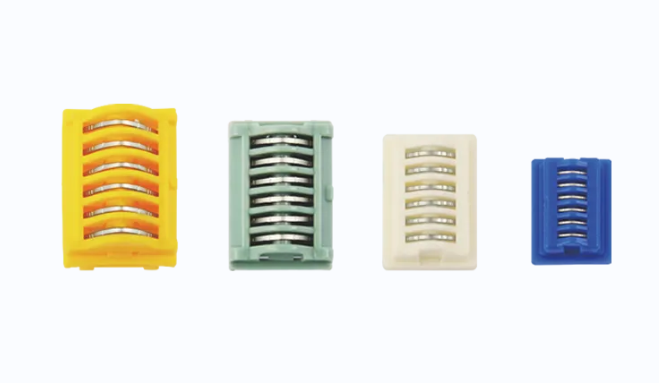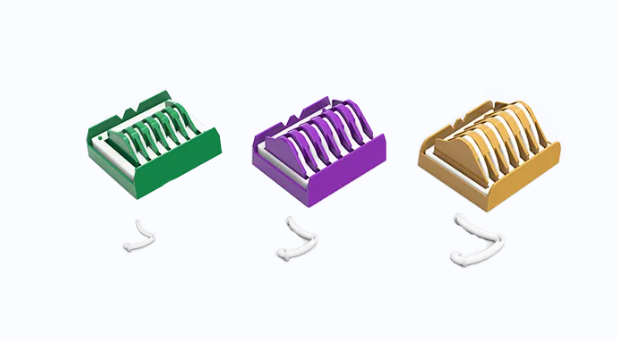In the field of surgery, ligation clips play a crucial role in achieving hemostasis and securing blood vessels or other anatomical structures. These tiny devices have revolutionized the way surgeons approach procedures that require the occlusion or closure of vessels, leading to safer and more efficient surgeries. We will delve into the world of ligation clips, exploring their purpose, types, applications, and benefits in various surgical settings.
Purpose and FunctionLigation clips, also known as hemoclips, are small, typically metallic, clamps designed to occlude blood vessels or other tubular structures during surgical interventions. Their primary purpose is to prevent bleeding and secure tissues, allowing surgeons to perform precise and controlled procedures. By exerting pressure on the vessel or structure, ligation clips effectively stop the flow of blood or bodily fluids, ensuring a bloodless surgical field and minimizing the risk of complications.
Types of Ligation Clips
There are different types of ligation clips available, each with its own unique characteristics and applications. The most common types include titanium clips, polymer clips, and absorbable clips. Such as:
Titanium Clips:Titanium clips are widely used in surgical procedures. They are made from a non-reactive and durable metal, making them suitable for long-term occlusion. These clips are designed to withstand the body's physiological conditions and maintain their integrity over time. Titanium clips offer secure closure and are commonly used in vascular surgeries, including the ligation of blood vessels and sealing of ducts.
Polymer Clips:Polymer clips are another popular type of ligation clips. They are made from synthetic materials, such as medical-grade polymers. Polymer clips are often used for temporary occlusion or in laparoscopic procedures where long-term closure is not required. These clips are lightweight, flexible, and compatible with minimally invasive techniques. They provide a secure grip on vessels or tissue, allowing surgeons to perform precise procedures with ease.
Absorbable Clips:
Absorbable clips are designed to be absorbed by the body over time. They are typically made from materials such as absorbable polymers or materials derived from biological sources. These clips are commonly used in procedures where long-term occlusion is unnecessary, and the clip can safely dissolve within the body. Absorbable clips are often used in gastrointestinal surgeries or other procedures where the clip's long-term presence may not be desired.
Hemostatic Clips:
Hemostatic clips are a specialized type of ligation clip that focuses on achieving effective hemostasis. These clips are designed with serrated jaws or ridges that provide enhanced grip and secure closure. They are commonly used in situations where controlling bleeding is a primary concern, such as in trauma cases or vascular surgeries.
Removable Clips:
Removable clips, as the name suggests, are designed to be easily removed if necessary. These clips have a specific mechanism that allows for their secure placement and subsequent removal when required. They are often used in procedures where temporary occlusion or adjustability is desired, such as in certain vascular surgeries or reconstructive procedures.
The specific types of ligation clips used in a surgical procedure may vary depending on the surgeon's preference, the nature of the surgery, and the patient's condition. Surgeons will select the most appropriate ligation clip based on factors such as the size of the vessel or structure being occluded, the duration of occlusion required, and the desired long-term outcomes.
Applications of ligation clipsLigation clips find application in a wide range of surgical procedures across various medical specialties. They are commonly used in general surgery, vascular surgery, gynecological surgery, urological surgery, and gastrointestinal surgery. Some specific applications include the ligation of blood vessels, sealing of ducts, securing of tissue during organ removal, and controlling bleeding in trauma cases. With their versatility, ligation clips have become indispensable tools for surgeons, enabling them to perform complex procedures with greater precision and safety.
Benefits
The use of ligation clips offers several advantages in surgical practice. Firstly, they provide a quick and efficient method for achieving hemostasis, reducing surgical time and minimizing the risk of complications related to bleeding. Additionally, ligation clips are relatively easy to apply, allowing for faster and more streamlined surgical procedures. Their small size and compatibility with minimally invasive techniques, such as laparoscopy, make them ideal for use in modern surgical approaches. Furthermore, the availability of different clip materials and designs caters to individual patient needs and specific surgical requirements.
Ligation clips have revolutionized surgical procedures, providing surgeons with a reliable and efficient means of achieving hemostasis and securing anatomical structures. With their ability to prevent bleeding and facilitate precise surgical interventions, these small yet powerful devices have become integral to a wide range of surgical specialties. As technology continues to advance, ligation clips are likely to evolve further, contributing to improved patient outcomes and advancing the field of surgery as a whole.
Kangji Medical is a medical device group founded in 2004 with headquarters at Hangzhou, Zhejiang Province, China. We were listed at the mainboard of the Stock Exchange of Hong Kong in June 2020 (Stock Code: 9997.HK). We specialize in the design, development, manufacture and sale of minimally invasive surgery instruments and accessories (“MISIA”) . We strive for the mission of “providing physicians with high-quality products and services, and dedicating to improve people's health”. We offer a comprehensive product portfolio to provide physicians and hospitals one-stop and tailored surgical solutions primarily for four major surgical specialties, including obstetrics and gynecology, general surgery, urology, and thoracic surgery. And we are committed to developing an internationally recognized minimally invasive surgery instruments and accessories platform with global coverage.
We have established research platforms, including Provincial Academician Research Workstation, Provincial Enterprise Research Institute and Enterprise High and New Technology Research Centre, to facilitate the development of MISIA products that meet the clinical needs. Our comprehensive and solution-oriented product portfolio can improve surgical efficiency and clinical outcomes for patients. We have received international accreditations for our quality control program, including EN ISO 13485:2016, ISO 9001:2015, ISO 45001:2018, ISO 14001:2015 and CE(93/42/EEC).


Comments